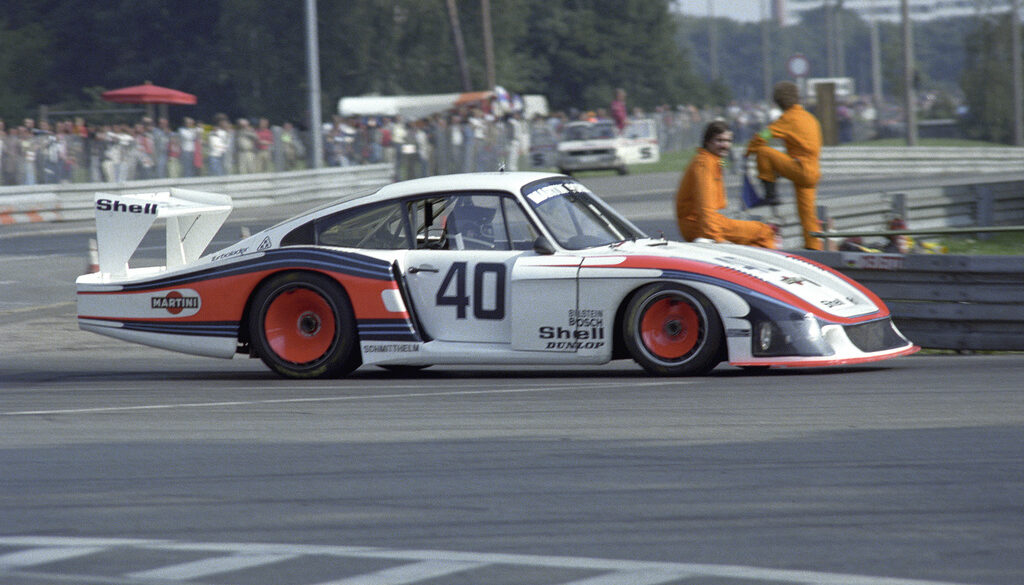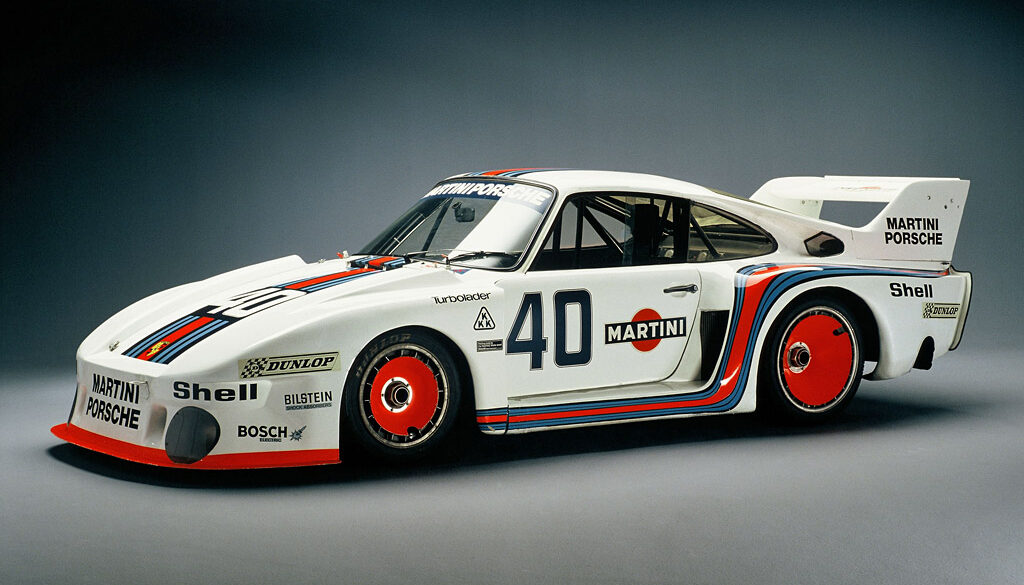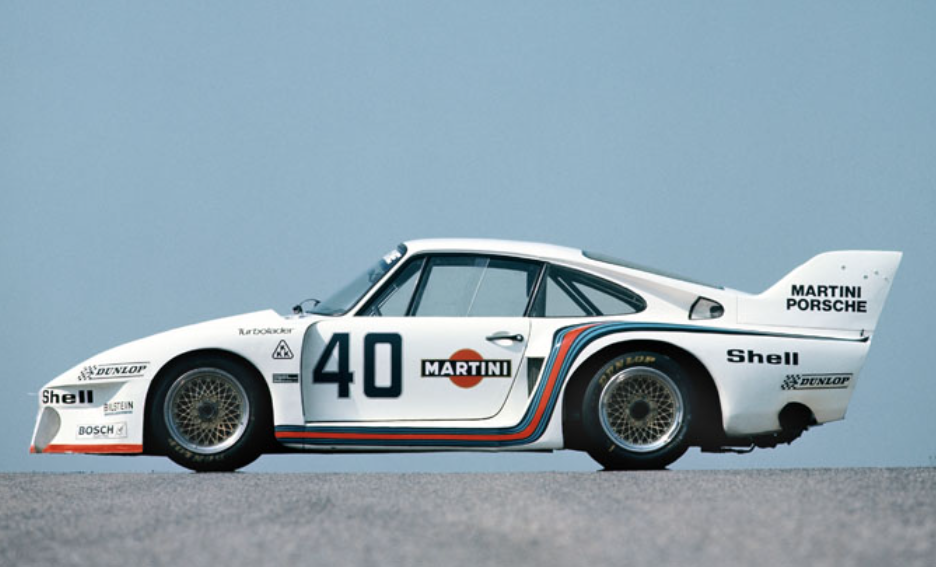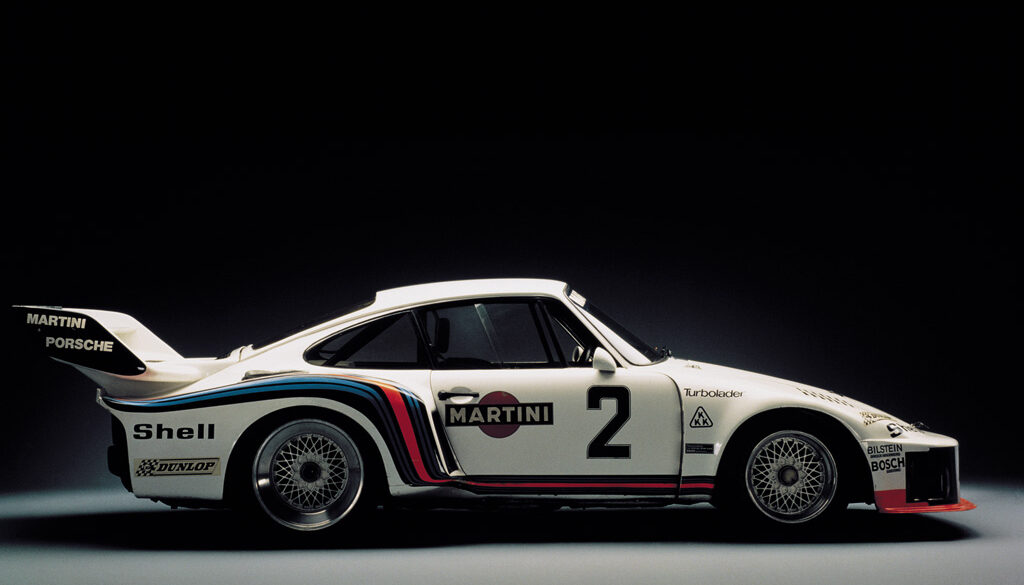The 935/78 was the ultimate expression of the 911 factory race car before Porsche officially withdrew from motor sport. Raced under the Group 5 silhouette series, great liberties were taken with the design and the result was nicknamed ‘Moby Dick’ for its large size and huge overhangs. The 935/78 was built under Porsche's Chief Racing by Norbert Singer for high speeds at Le Mans. Due to the advanced shape of the car 227 mph or 366 km/h was possible.
The 935 ‘Baby’, based on the successful 935 Group 5 race sports car, was created in 1977, after only four months of development,, specifically for entries in the small division (up to 2000cc) of the German Sports Racing Championship. Compared to the Group 5 car, this little 935 had a six cylinder turbo engine of 370bhp, reduced to a displacement of 1.4-litres. A thorough diet helped ‘Baby’ meet the minimum weight of 750kg as dictated by the rules.
The 935/77 was a result of relaxed rules and the car got a completely new suspension. The mirrors were incorporated into the front fenders and the rear window had a new angle. The 935/77 was visually very pleasing. While the 935/76 had a single turbocharger, the 2.85-litre engine of the 935/77 had two turbochargers. There was also a "baby" 935/77 built with a smaller 1.4-litre turbocharged engine to compete in the national German DRM series under 2 liter class.
The Group 4 racer based on the 911 Turbo (930) was called 934 and the Group 5 Porsche was called 935. The first version of the 935 looked similar to the 911 Carrera RSR. The first customers for 935 were Martini Racing and Kremer Racing. The Martini car was a full factory development, while Kremer made its own enhancements already before the first race. By 1977, the 935 was sold as a customer car for these series to race against cars like the BMW CSL.






